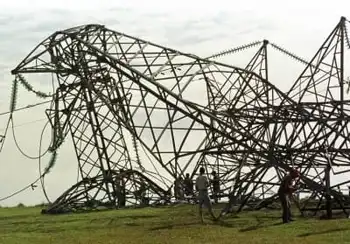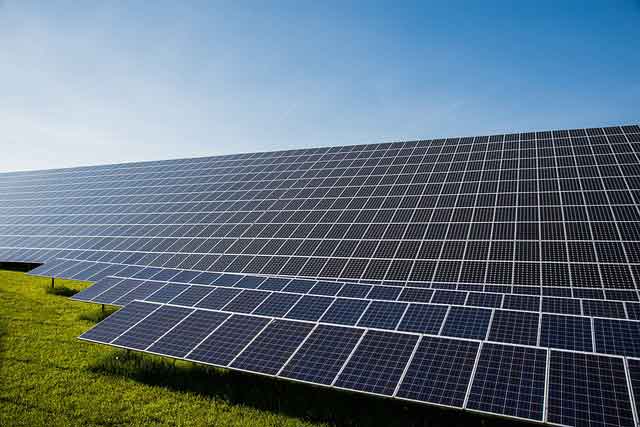Turning water into a revenue stream
By Industrial Waterworld
Protective Relay Training - Basic
Our customized live online or in‑person group training can be delivered to your staff at your location.

- Live Online
- 12 hours Instructor-led
- Group Training Available
As part of the agreement, which was signed by CPV and Charles County commissioners, CPV has agreed to buy and use reclaimed water from the county's Mattawoman Wastewater Treatment Plant for cooling at its power plant. The company expects to use an estimated 650 million to 750 million gallons a year of reclaimed water at the power plant.
"Selling reclaimed water from the Mattawoman treatment facility for use at this power plant is a win all around. It is good for the residents of Charles County, good for CPV, good for local groundwater supplies, good for our economy and good for the Potomac River and Chesapeake Bay," said Wayne Cooper, President of the Charles County Board of Commissioners.
"This agreement is part of the solution to one of the region's top environmental priorities: saving the Chesapeake Bay," said Doug Egan, Chairman and Chief Executive Officer of CPV, which is headquartered in Silver Spring, Maryland. "Environmental stewardship is at the core of CPV's mission. We're pleased that our project will contribute to a cleaner Potomac River and Chesapeake Bay by using several million gallons a day of treated wastewater that otherwise would have been disposed directly into the Potomac River."
"CPV St. Charles is moving ahead with plans to begin construction in the summer of 2009," Egan added. "We are looking forward to the opportunity to bring Maryland customers clean and reliable power from this facility as early as the summer of 2012."
The development agreement with Charles County is the second major milestone achieved in recent weeks by the CPV St. Charles project. Last month, the Maryland Public Service Commission issued a final order approving the state Certificate of Public Convenience and Necessity (CPCN) needed for CPV to build and operate the facility.
"CPV St. Charles is the only proposed power plant in Maryland with both state and local approvals already in place, which means the St. Charles project provides the best option for a clean, Maryland-based solution to the region's projected electricity gap over the next few years," said Sharon Segner, project director for CPV.
CPV St. Charles will produce enough electricity to power 600,000 homes while minimizing the environmental effects on the region's air and water.
"Using state-of-the-art technology, CPV's natural gas power plant will be one of the cleanest natural gas-powered electric generating facilities in the country," Segner said. "This is not your father's power plant. Its emissions profile and overall environmental impact will be dramatically less than older and less-efficient coal-fired power plants currently used throughout the region for power."
CPV St. Charles will be one of a select few power plants that will use treated, reclaimed effluent from local municipal wastewater treatment plants for the large volumes of water needed for cooling steam in the production of electricity.
The agreement with Charles County allows CPV St. Charles to use as much as 5.4 million gallons a day of treated wastewater from the Mattawoman plant, but that maximum amount would be used only on very hot days when the plant is running at full capacity. The average use on a typical summer day is estimated to be 3.6 million gallons, with less used at other times of the year. About 80 percent of the reclaimed water will be used in the cooling process, significantly reducing the discharge of treated water into the Chesapeake Bay.
CPV St. Charles will not use groundwater for cooling. The only use of groundwater will be for plant operations, and CPV has agreed to work to minimize this use.
"CPV St. Charles is the type of 21st Century power plant project that our state and our nation needs, as we work to meet the growing demand for on-demand clean electricity while preserving our precious air and water resources," Egan said.











